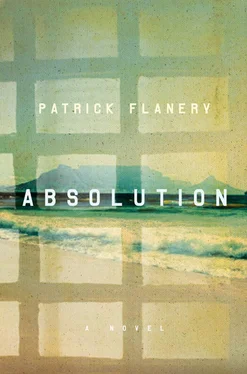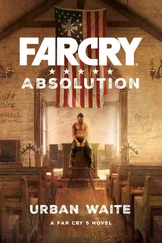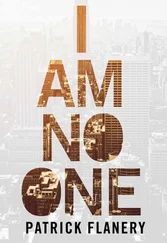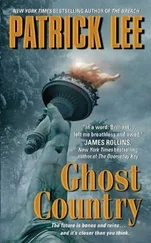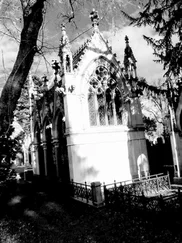‘And did you see them when they returned to Cape Town?’
‘In a manner of speaking,’ Clare said, the image of Nora and Stephan’s faces as she had last seen them flashing up out of her memory. ‘The day before their return I went to a meeting of one of the groups with which I had begun to affiliate myself. I believed it was mostly a talking shop for like-minded radicals. We had no formal affiliation, no name for what we were. I knew little about the other members except that they were young men and women who were united by their abhorrence of oppression. There were rumours that one of the group, a man who seldom spoke, might have connections with MK, or was even an MK cadre himself. I don’t remember his name, might never have known it, so I can’t be more specific. Everyone knew that Nora was my sister and somehow Stephan came up in the course of the conversation. Here was a chance, I thought, to prove myself interesting to these people I respected, and in the case of the man who seldom spoke, who may or may not have been part of the liberation movement’s armed struggle, perhaps even to prove myself useful. I announced that my sister and brother-in-law were returning home, that Stephan had been recalled, and that they would arrive in Cape Town the following day for a stay of a few nights. The man who seldom spoke suddenly looked more alert and asked if they would be staying with me. I told him no, they would be staying at a guest house in Constantia. I gave him the name, knowing as I did that it was quite possible I was putting my sister’s life in jeopardy. Nora had intimated on the phone that their return was not public knowledge, and that the place they would be staying was also secret as Stephan had received death threats. There had been stories about Stephan and his activities in Washington in the national press, stories about the money he was winning from international investors and the IMF — it had all been widely reported, critically by those who had the courage to criticize, in celebration by the mouthpieces of the Establishment. I knew that in giving away not only their itinerary but also their location in Cape Town I might be endangering both of them. And rather than feeling remorse, what I felt was this torrent of excitement, and even a kind of ecstatic terror, that I had shown myself to be not just a faculty wife and mother, not just a writer who had published very little, but someone with information and knowledge who knew when that knowledge might be useful and was not afraid to act. The man who seldom spoke thanked me for the interesting information, and we moved on to other matters.’
‘And in the following days …?’
‘Two days later they were dead. The police woke me in the middle of the night and took me to identify the bodies. Their faces had been disfigured. Their supposed assassin, John Dlamini, was a man I had never met at any of the gatherings I attended, certainly not the man who seldom spoke and was rumoured to be involved with MK. Dlamini, as you know, was arrested shortly thereafter and, unlike other assassins and would-be assassins in this country — Tsafendas and Pratt, for instance — Dlamini was not found to be insane and unbalanced, but was promptly sentenced to death. He did not protest his innocence or claim to be controlled by a foreign body (human or animal or national), but insisted he was working alone and wished only to destroy the quintessence of the apartheid state, or something to that effect. He died in custody before the execution could be carried out.’
‘Is that the end of your story?’
The coldness of Mark’s voice, the abrupt thwack of his speech in the room, pulled Clare out of her own narrative. She looked down at her lap to find that her hands were shaking. ‘I suppose it is. Will you cross-examine me? Will you call other witnesses?’
‘There can’t be a trial where no crime has been committed. If anything you’re merely a gossip, and your gossiping resulted in the deaths of two people, at least one of whom was wholly innocent.’
‘You mean your Aunt Nora.’
Clare watched as Mark wove his fingers together and frowned. She knew what he must think of her, that she was a monster, that he could never love her again, assuming he ever had. He sighed once more and she wondered whether, in his meetings with clients, with the unambiguously criminal, he showed his frustration and impatience so openly. She hoped for the sake of the innocent that he did not.
At last, his eyes blinking with what looked like fury, he spoke. ‘Nora didn’t do anything wrong apart from trying to intervene in your life and make trouble. I don’t see that she had a political function. If we started killing off everyone who made ordinary mischief, we’d soon depopulate half the planet. But it’s my guess you wouldn’t think that such a bad thing.’
The vision of you caged and naked, under the beating sun, tethered to the shore and waiting for the sea to take you, for the predators to consume you, is nothing but a vision. If you had been captured I have to hope your fate would have been more prosaic. They would have taken you to the women’s jail in Johannesburg, and after spending time in the block for prisoners awaiting trial, and then submitting to the trial itself, you would have passed the term of your sentence, assuming you were not sentenced to death, in one of the few small but comparatively comfortable whitewashed rooms.
I went there again not so long ago, to that prison which is now a museum. I tried to imagine you into that space, to see your lean and limber body testing itself against its confinement. At least there, in prison, you would have been reachable. If arrested and detained, I might have found a way to aid your defence, might yet have had correspondence with you, seen you again, come to know you better, to repair all that I failed to do, to make you love me again. I would have made amends, repented to you, sought your absolution for my failures against you.
During my visit to the museum I found it difficult to be moved by the cells once reserved for white women, or by their stories. Compared to the women of colour, who were detained in conditions unsuitable for dogs, conditions that would have tested even the mettle of rats, the white women lived in relative comfort.
I looked for your name in the histories of dissent in the museum’s displays but could find no reference. Your name has not been rehabilitated. You have not been made over into a hero. The saints of the struggle are those whom we know were murdered, or who survived to turn themselves into holy orators.
But perhaps my nightmare vision is not so fanciful. There are secrets that remain buried in the history of this country, people who were kidnapped and never recovered, remains buried in unmarked graves whose locations have been forgotten or suppressed, lives never accounted for, disappearances unexplained. Perhaps you did escape, into Lesotho or Zimbabwe or Mozambique, or slipped over into Swaziland or even the Transkei, and from one of those places were kidnapped and brought back into the country, or killed on the spot.
I see you in a bay on the northern Natal coast, in one of the old covert facilities, your pale skin burned and ravaged, your head immersed, your body wracked by electric shock, your arms dislocated from hanging, lacerations at your wrists and ankles. Your torturers no longer saw you as human, not even as animal, but as a thing outside of nature, a monster who had stolen life to animate herself. They killed not just out of indifference, those men, and not only out of hate — but out of fear.
*
Unlike in your final notebook, detailing your journey with Sam in the days leading up to your disappearance, this earlier one offers no sustained narrative. It is, instead, a collection of fragments: notes about your work, the stories you were writing for the paper, and telegraphic diary entries about your life. If you had a lover, you say nothing about him.
Читать дальше
